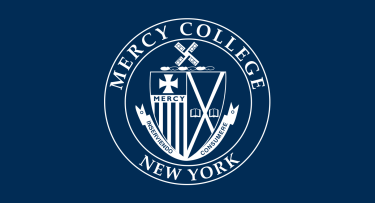Mercy College Recognizes Adjunct Faculty for Excellence in Instruction

This fall, for the first time, Mercy College honored 65 members of the adjunct faculty with the Excellence in Adjunct Instruction Award. Honorees representing all five of Mercy’s schools and many of its programs were chosen by a committee appointed by José Herrera, PhD, Provost and Vice President for Academic Affairs. Criteria for the awards were based on careful study and input from deans and fellow faculty members as well as from student course evaluations.
While the award is new, the College’s commitment to developing its adjunct faculty is part of a long-standing commitment to faculty excellence. More and more, colleges and universities rely on a model that blends full-time faculty with a well-trained corps of adjunct professors.
Saul Fisher, PhD, Associate Provost for Research, Grants, and Academic Initiatives, explained the challenges of working with this model. “Mercy appoints all its faculty with care and attention to performance, credentials, teaching ability, and engagement with students,” he said. “Adjunct faculty members are at a disadvantage in that they spend less time on campus than full-time faculty, though they have just as important a role in teaching and, ideally, the academic environment overall. Mercy is working to better engage adjunct faculty members, acknowledging their vital place in the campus community by recognizing teaching excellence and commitment.”
The 65 honorees represent only about ten percent of Mercy’s total adjunct faculty, which Herrera described as “a tremendous resource that benefits Mercy College in many ways.” According to Fisher, adjunct faculty tend to fall into one of several situations: they may be doctoral candidates who are teaching while completing a dissertation; professionals with full-time jobs who have opted to share their expertise in a particular field; or retired professionals or faculty members wishing to leave a legacy for the next generation. All add value, said Fisher. “For example, one of our adjunct faculty who teaches media studies has decades of experience working in broadcast journalism. Doctoral candidates who teach are on the cutting edge of the latest research and best practices in their field. Mercy students derive great benefit from both.”
Studies show that having an engaged, connected community of full-time and adjunct faculty enriches the student experience and enhances academic success. “We recognize how vitally important adjunct faculty are to Mercy’s mission,” said Fisher. “Part of our aim in creating the awards for adjunct excellence is to build community among the adjunct faculty and capture as much of that high connectivity as we can.”
“Mercy is committed to finding new ways to serve all its faculty members,” said Provost Herrera. “Adjunct professors thrive when they are treated like fully-vested members of our community. Only in this way can we expect the highest level of performance, service, care and engagement with our students. That engagement continues to be the heart of Mercy’s mission.”
